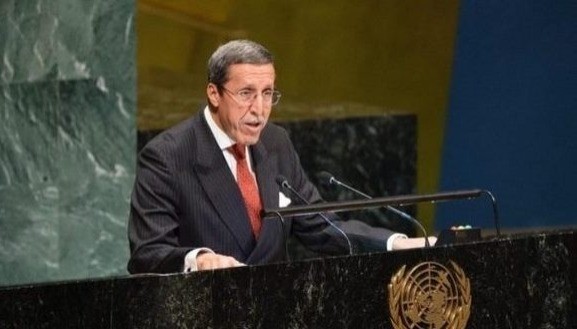A resolution brought out by Morocco denouncing the Quran’s burning as well as hate speech that targets religious symbols was overwhelmingly approved by the 193-member United Nations General Assembly.
The resolution strongly condemns all acts of violence committed against persons based on their faith or beliefs and the burning of sacred books, emphasizing that such behavior is illegal under international law.
Morocco is widely praised for being a regional and international pioneer in advancing peace, tolerance, and interreligious and intercultural communication, and for championing the causes of peace and tolerance.
The resolution was presented and adopted at a time when worries about Islamophobia and the difficulties that Muslim communities encounter in Europe are growing, with the burning of the Quran in Sweden being the most recent occurrence.
Many warned that such actions foster a climate of fear and animosity towards Muslims, drawing extensive attention to and criticism from the worldwide community in response to the incident.
Ambassador Omar Hilale of Morocco’s permanent mission to the UN stressed during the resolution’s presentation to the General Assembly that it builds upon resolution 73/328, the first of its type against hate speech, which was enacted in 2019.
Additionally, it advances resolution 75/309, which designated June 18 as an annual “International Day for Countering Hate Speech.”
Hilale pointed out that by opposing hate speech, extremism, and all forms of racism, the new resolution is in line with the progressive, community-centered, and humanitarian attitude of King Mohammed VI.
The monarch’s address during the 9th World Forum of the United Nations Alliance of Civilizations, which was held in Fez in November 2022, was recounted by the ambassador.
The King remarked in his address, “Never has our culture been more exposed; never has cohabitation been so constantly threatened; seldom has the ‘Other’ been so connected with distrust or exploited to incite fear and foster hatred.
He also raised grave worries about how populism and extremism are distorting “moderate discourse,” and how faiths are frequently misunderstood or vilified.
The King expressed a vision of a society that promotes communication, comprehension, and solidarity among various communities by denouncing hate speech and any kind of violence directed at anyone because of their faith or beliefs.
Hilale emphasized that the new resolution intends to reinforce the group’s commitment to promoting a nonviolent culture of peace for the welfare of mankind and future generations, in keeping with the King’s instructions.
He emphasized that the resolution addresses hostile expressions that target a particular faith and race rather than attempting to stifle free speech.





